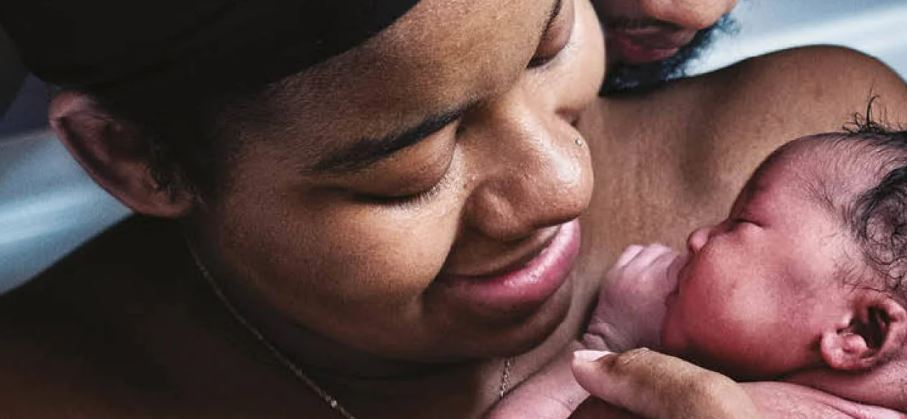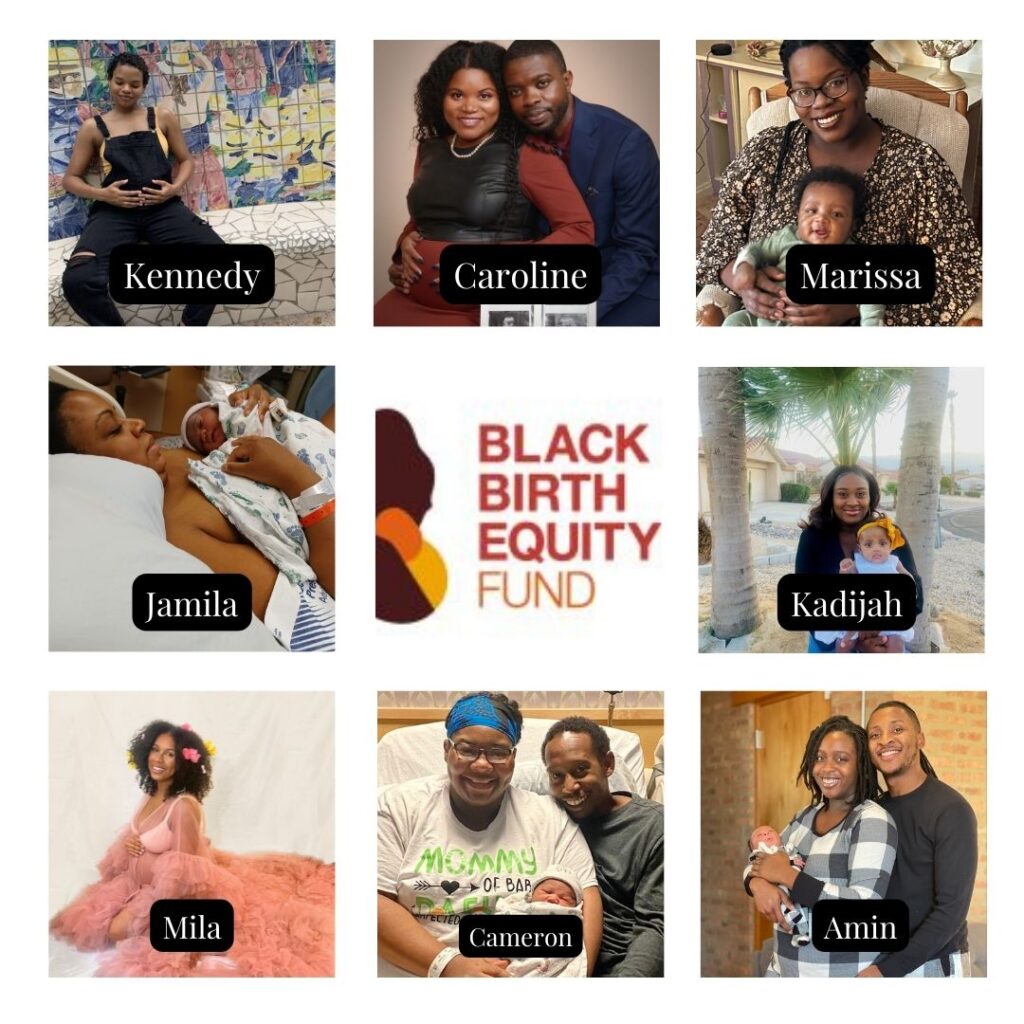Meet 8 Women Benefiting from Baby Dove’s Black Birth Equity Fund

Last year, Baby Dove in partnership with Black Mamas Matter Alliance launched the Black Birth Equity Fund.
The initiative was designed to provide 190 Black birthing people with $1,300 grants to assist with life-changing doula services.
Black women in the United States are three to four times more likely to die from childbirth-related issues than white women, and BMMA is an organization dedicated to reversing maternal outcomes. This week, the organization is celebrating Black Maternal Health Week.
To join the chorus of Black maternal health education and support, Baby Dove is highlighting a few of its current Black Birth Equity Fund recipients.

“With Baby Dove being a global brand, Black Mamas Matter Alliance has been a partner to help drive meaningful action fueled by the brand’s commitment to address the critical issues of Black maternal mortality, provide financial access to doulas, promote advocacy to better support Black maternal health, and help create change at both the individual and systematic levels,” said BMMA Co-Founder and Executive Director Angela Aina.
Aina also serves as the organization’s Baby Dove strategic advisor, and she added that the company’s commitment aligns with the Black Maternal Health Week efforts.
“This contributes to the Black Maternal Health Week campaign to end maternal mortality and advocate for equality across the full-spectrum of sexual, maternal, and reproductive health care, services, programs, and initiatives,” Aina said.
Here are eight women who have benefited from the Baby Dove Black Birth Equity Fund.
Caroline, New York
Though she had ample support from her husband and mother-in-law during early pregnancy, 35-year-old Caroline had a difficult experience with her initial healthcare providers. They would lose her information and ignore her concerns during exams. Caroline, 35, switched providers and found a more positive experience.
“I really want to be able to help all Black women find equity especially in the maternal realm, and especially with their pregnancies because there is a lot of bias. I know some people don’t believe that it exists. But I want to bring light to that and help change the perception of our experience.”
Caroline
Marissa, Ohio
Marissa went into her pregnancy with a deep understanding of the Black maternal health gap through working on her dissertation. The 29-year-old knew the value of doulas, and had a wonderful experience with her own in the labor and delivery room.
“When I came across the Black Birth Equity Fund, I was immediately motivated to apply, just knowing how doulas can have such a positive impact on improving the birthing journey and the Black mother mortality rate in general. It was so great to see a company talking about Black Maternal Health and taking action.”
Marissa
Kadijah, California
This first-time mom didn’t think doula services were an option. But after working with a doula during her last month of pregnancy, Kadijah, 23, can’t stress how beneficial it is. She also received support from her doula during postpartum.
“I know that we all have a set plan in our heads for birth and our babies care after birth, but initially I didn’t consider postpartum care for myself. I didn’t know how much help and guidance I would need beyond birthing. From the beginning I was so set on having a midwife and homebirth. It didn’t happen that way, but it happened how it needed to happen. So, my advice is to be open-minded and give yourself loving grace if a situation arises that wasn’t planned. Don’t think that you failed or that your birthing experience is any less significant if things take an opposite turn.”
Kadijah
Mila, New York
Mila’s doula was among those supporting her pregnancy. Mila tragically lost her child but remained positive about her experience working with a doula. The 35-year-old wants to encourage other Black expectant mothers to consider one.
“Every session I had with my doula was very reassuring. She made me so comfortable about the process and any questions I had, she answered. So, during the whole process I was never alone and had support – either with my doula (my cousin), and then with my midwife, there was someone always available.”
Mila
Kennedy, Texas
This first-time mother welcomed her child about a week after starting college. Kennedy, 21, was grateful to benefit from the Black Birth Equity Fund, as it helped support her transitioning into many life changes at once.
“I had my baby a week into starting school, so there was a lot going on at once. I used the funds to help support me as I adjusted to being a single mother and college student. The funds helped me provide for myself as I healed from the pregnancy.”
Jamila, California
Jamila was somewhat concerned about becoming a first-time mom at 39. She had a history of PCOS. She had a lot of family nearby and knew a doula could help guide her and her husband during pregnancy and postpartum.
“As new parents, we found a doula that was present right after birth, who provided support for about a month of visits, and was also able to give us rest and care to help us sleep through the night. The much-needed rest was very helpful for me and my miracle baby.”
Jamila
Amin, Illinois
Amin, 27, knew she wanted to hire a doula, so she was thrilled to find out about the Black Birth Equity Fund. Her doula supported her throughout her pregnancy and during her postpartum period, including with breastfeeding education and household chores.
“Whether a birthing person decides to have a hospital birth or home birth, or a birth at a birthing center like I did, having the extra support of a doula who looks like you and the support of the people around you, makes all the difference.”
Amin
Cameron, North Carolina
The first-time mother benefited from having a doula in the delivery room and around during postpartum. Cameron, 29, said she and her fiance enjoyed having doula support and involvement.
“During postpartum, my doula made sure that we were prepared upon leaving the hospital and explained all my options. She went above and beyond by even providing me with postpartum Black Motherhood positive affirmation cards to practice during my postpartum experience when times may be the toughest.”
Cameron
Baby Dove is still accepting applications for the Black Birth Equity Fund. To be eligible, applicants must be Black, reside in the U.S., pregnant in the third trimester and be in need of a birth, postpartum or antepartum doula.
